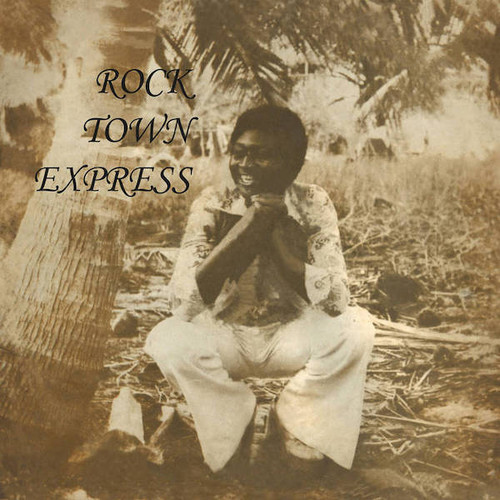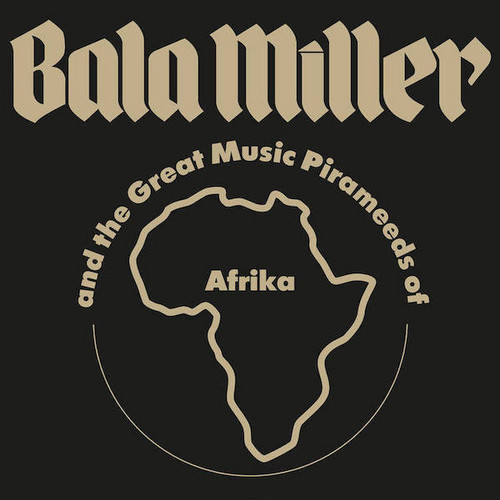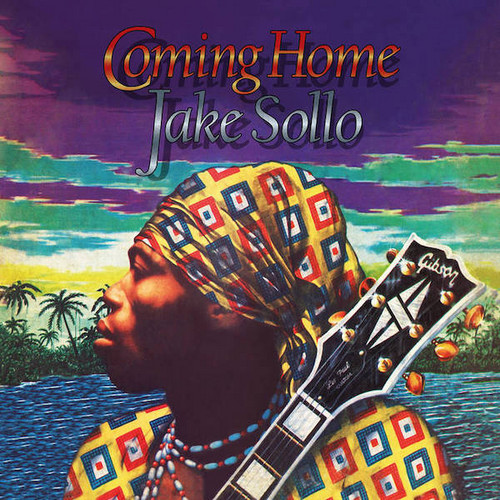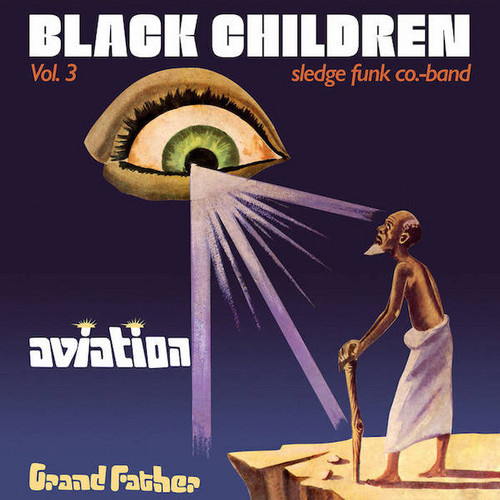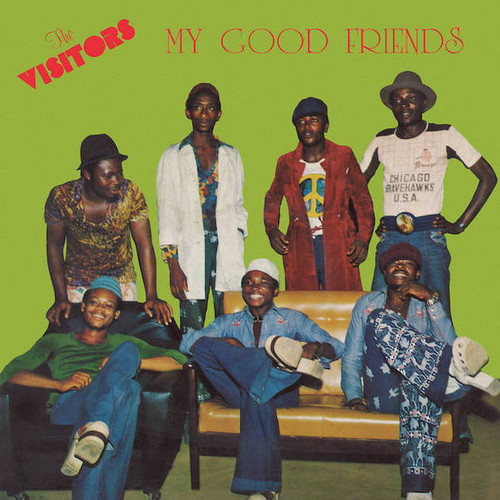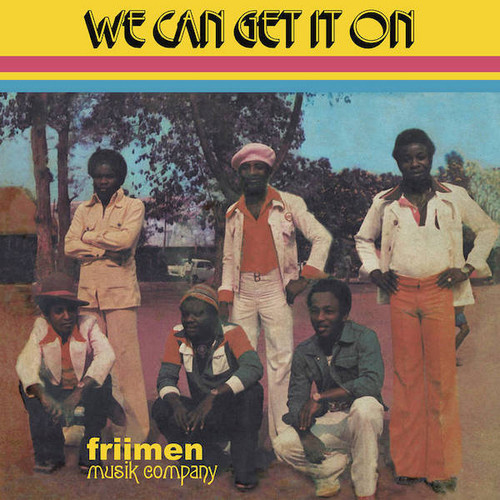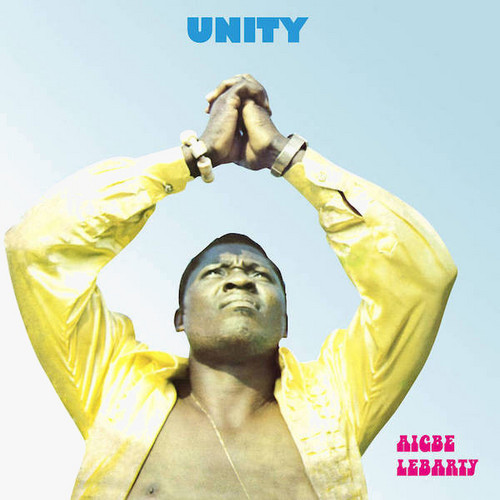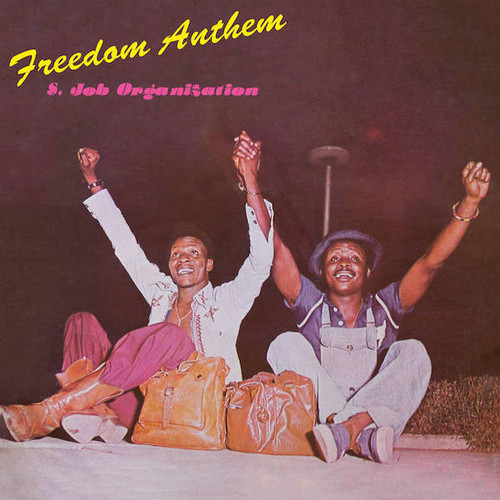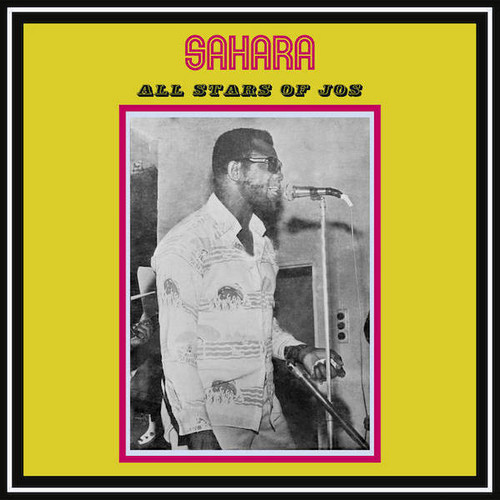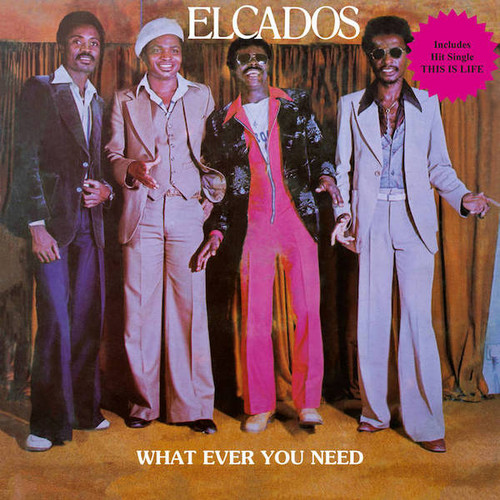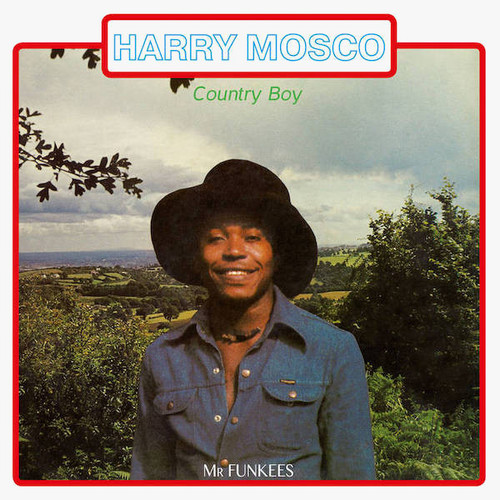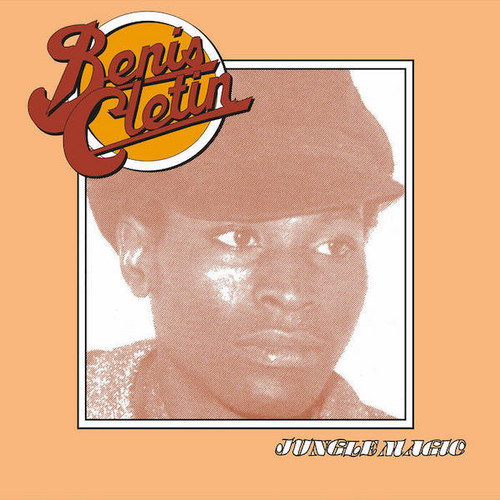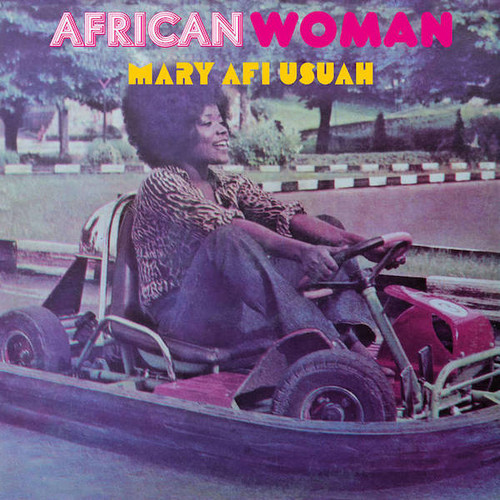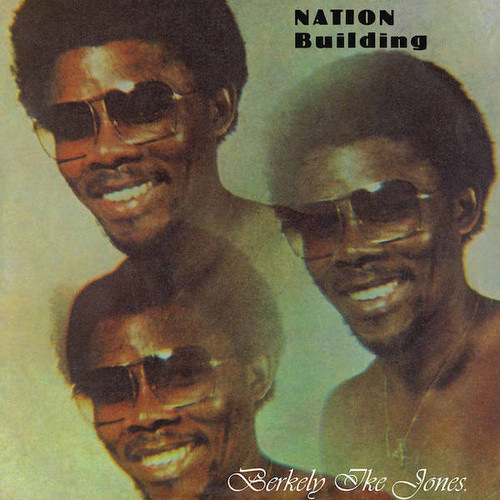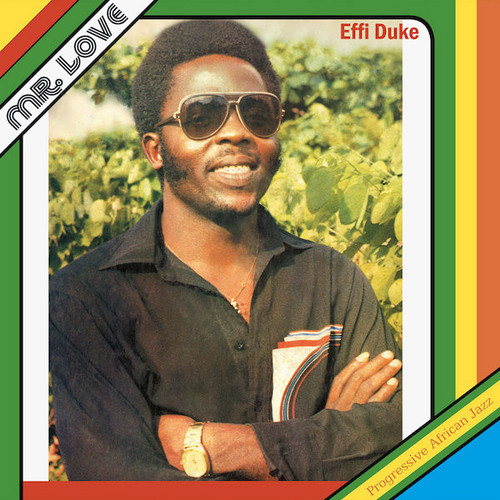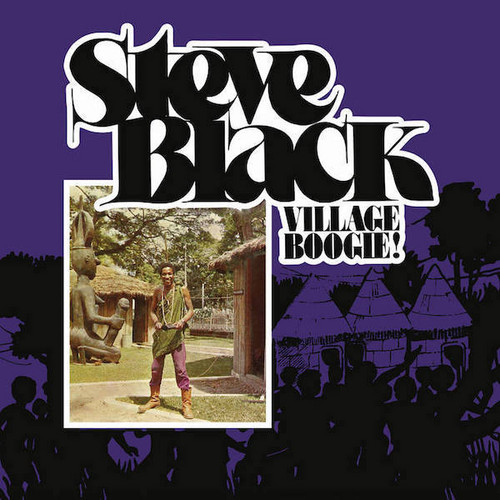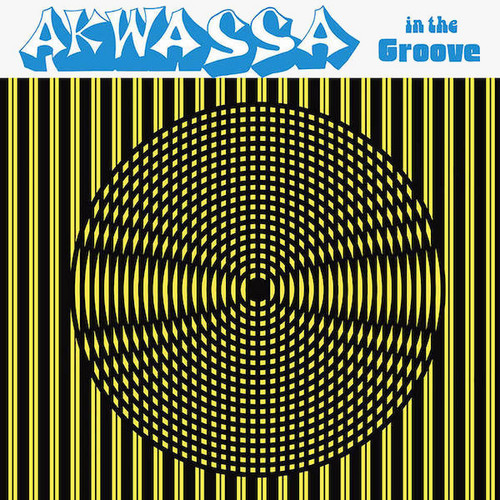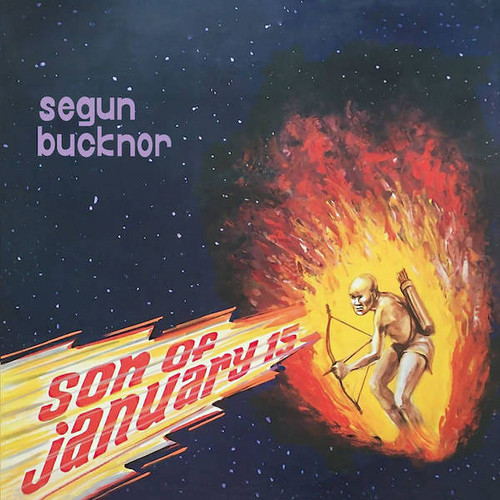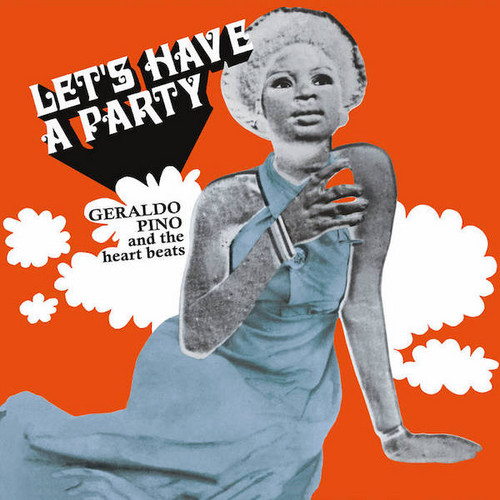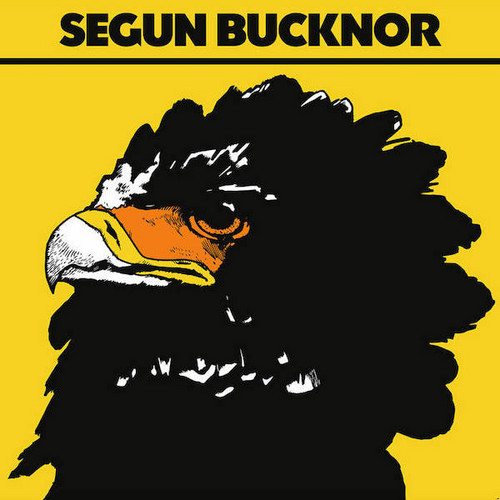Jazz /
Rock Town Express
There was a time in the 1970s when the best band in the Nigeria was actually from Cameroon. Rock Town Express, formed out of the ashes of Wrinkar Experience by Yaoundé boys Edjo'o Jacques Racine and Ginger Forcha, hit it hard, hit it loud and hit it funky. Racine and Forcha had been recruited from Cameroon by Dan Ian and after only six months, left them stranded in Nigeria's troubled east. Their first album as Rock Town Express was released on Ginger Baker's ARC label in 1974. This, their second…
Pyramids
Bala Miller was famous for pushing boundaries. His first job was selling beer in the Muslim north. And as a musician he'd always try to sneak in 'local' flourishes while playing trumpet with Bobby Benson and Victor Olaiya. It was with his band, the Pirameeds, however, that he was able to realise his dream of incorporating northern tunes into mainstream highlife. Honed razor sharp from a residency at the Costain Club in Kuduna, the band recorded Pyramids, a breathtaking fusion of Hausa rhythms, j…
Coming Home
In 1977 Jake Sollo returned to Nigeria to record his first solo album, Coming Home. His long-term band, The Funkees, had imploded in London. And his big break with the Afro super band, Osibisa, was cut short when he went on strike with Kiki Gyan and promptly got sacked. Rather than sit at a bar and feel sorry for himself, Jake returned to Nigeria and got his mates together – including the aforementioned Mr. Gyan – and headed into the EMI studios in Lagos. The result was Coming Home, a triumphant…
Vol. 3: Aviation Grand Father
In the mid-seventies Nigeria, everybody loved the Black Children Sledge Funk Co. Band. Blasting out of the bustling river port of Onitsha, their infectious, feel-good grooves were the perfect antidote to the dark economic clouds gathering over the country. Nigerians, young and old, lapped it up. Every member of the band had played with The Strangers. Michael Hammedatha Moore, sang and wrote the songs. Daniel Carlos Yakubu played guitar. Jerry Freeman Nwokolo was on keyboards. And Benson Teteh pl…
My Good Friends
Set up by producer Ben Okonkwo in 1973, the BEN label, and its offshoot Clover Sounds, broke some of the biggest bands outside of Lagos. The Apostles, Akwassa, The Doves, Mary Afi Usuah and Aktion all got their start in the cramped studio in the commercial heart of Aba. The least known – and arguably one of the best bands on the label – was The Visitors. For a short, sweet time between 1975 and 1978, The Visitors were creating the most righteous sounds in the East. We’re talking deep afro-funk w…
We Can Get It On
By the mid 1970’s in Nigeria, the Biafran War was a distant memory and the music scene in the eastern city of Aba was booming again. Bands like The Funkees, The Wings and The Apostles grabbed the headlines, but the more interesting stuff was coming from smaller groups like the Friimen. The Friimen, or the Friimen Muzik Company to use their official name, were influenced as much by pre-Saturday Night Fever Bee Gees as Jimi Hendrix and James Brown. In Beni Tudumey they had the best keyboardist in …
Unity
In 1979, long-time Highlife veteran Aigbe Lebarty decided to try his hand at high-energy disco funk. Checking the Lebartone Aces at the door, he borrowed the Sex Bombers from Prince Omo Lawal-Osula and created Unity, a sure-fire dance floor stomper that channels ‘Ring My Bell’ into a clarion cry for, well, unity ... and a good time. The title track is the undisputed highlight of the album. It rattles along in a wonky, skittish fashion, with the high-pitched toms dueling with the Sex Bombers in a…
Freedom Anthem
S. Job Organization (also known as SJOB Movement) was a rarity in the Nigerian music scene – a collective of equals in a world where band ‘leaders’ ruled the roost and ‘band boys’ had to make do with the crumbs. The name was an acronym representing each of the members – Samuel ‘Spark’ Abiloye, Johnnie Woode Olimah, Ehima ‘Blackie’ Ottah and Prince Bolarinwa Agba. They were music scene veterans and the nucleus of Sonny Okosuns’ group, Ozziddi. Unshackled, their undeniable chemistry fizzed. Listen…
Sahara All Star Band Jos
Based in the Havana Nightclub, in the central plateau town of Jos, the Sahara All Stars of Jos weren't part of the Lagos scene or the one in the east. Their leader, Dan Satch Ayo, had played with Dr Sir Warrior in the Orientals. He'd jammed with Mohammed Ahidjo and Sonny Akpan from The Funkees. Together with the All Stars he took the best of both scenes and created his own tight, hypnotic groove. First released in 1978, Sahara All Stars of Jos is a musical journey through all of those influences…
What Ever You Need
By the 1979 release of Whatever You Need, the Elcados were ready to party. “We got rhythm, we got sound,” they declare on ‘Funky Music’. “You’re going to dig it!' Starting out as the Moonrakers in Kanu in 1968, Steve Black, Rocky Mustapha, Tony Nosika and Frank Martins, spent the next decade gigging their way out of the north, including a surreal set with Khalifa Baba-Ahmed at the Miss New Nigeria contest. They released two rock-oriented albums in the mid ‘70s before hitting a disco/reggae groov…
Country Boy 'Mr. Funkees'
Don't let the floppy hat and rolling English countryside on the cover fool you. Harry Mosco's Country Boy is a certified floor-filler, bursting with Studio 54 era disco-funk as well as a token reggae monster, complete with its own dub version. Harry Mosco always had swagger. A founding member of The Funkees, he'd stride out on stage in tight pants and dark sunglasses, commanding the attention of a population distracted by war. When The Funkees split in London, it was clear that his star would ri…
Jungle Magic
Considered an acid boogie classic, Jungle Magic is a cosmic transmission from the early days of Nigerian disco. The bass lines are lethal. The synths are fat and squelchy. And the groove is non-stop and primal. Channeling the jungle gods of funk and introducing them to Donna Summers, the title track, ‘Jungle Magic’, takes you to a freaky place you didn’t know existed but never want to leave. ‘Love Forever’ brings a Calypso party vibe while ‘Fireman’ suggests Prince may have been listening to Ben…
African Woman
Mary Afi Usuah trained as an a opera singer at the prestigious St Cecilia Academy in Rome and spent 13 years touring Europe with artists like Duke Ellington and Deep Purple. She matched vocal chops with Robert Plant performing with Led Zeppelin and blew away the top names on the Lagos scene when she returned to Nigeria. She also broke a few hearts with her killer smile, if some accounts are to be believed. African Woman marshals these experiences into an exceptionally powerful and diverse album.…
Nation Building
Nation Building is a real forgotten gem from the late '70s and is among the very best Afro-Beat Disco Lps ever. Berkely Ike Jones is one of the icons of the Nigerian scene being the guitarist and founder of BLO. BLO were one of the very best progressive bands from Nigeria and managed to release several albums for EMI (Nigeria) and Afrodisia Records. BLO are definitely a ground-breaking band, that managed to further establish the entire Afro-Funk genre. At the time Ginger Baker of Cream went to t…
Mr. Love
Nigeria had a unique music scene which began spreading rapidly in the 1970s. The era was based on unspoiled use of fuzz pedal, keyboards and indisputable influences of the Psychedelic Blues bands of the West. In 1980 Effi Duke & The Love Family came out with their debut Mr. Love. It was released by Homzy Records which was a home of many Afro-Funk records, going strong from mid ’70s toward ’80s. Effi Duke & The Love Family being one of their most energetic albums. The ’80s were definitely more in…
Village Boogie
After starting his musical carrer back in 1968, the Nigerian artist, drummer, singer, multi-instrumentalist and producer Steve Black released his fantastic and unique album "Village Boogie!" in 1979. "Village Boogie!" really deserves the status of a legendary rarity and holy grail for fans of afro funk music. The original album is incredibly rare today and fetches prices of 800,00 and more USD! On this unique album Steve Black presents a new version of the smasher "Brand new wayo“, originally pl…
In The Groove
First official reissue ever! Nigeria had an utterly strong popular music scene in the 1970s, “Afro Beat” and “Afro Funk” were the hottest musical creations of the day and garage rock oriented bands like Ofege or funky monsters Akwassa were at the forefront of the movement. I deliberately call it their second album despite three albums that were released under the monicker Heads Funk Band with exactly the same line up as Akwassa from 1975 to 1978. However, the main difference between “In the groo…
Son Of January 15
Segun Bucknor was one of the most important figures in the Nigerian music scene of the 70s, despite having only a brief career with his afrobeat unit which in 1972 released this superb album of which originals usually not turn up at any price. A reissue like this on Jet Records therefore is long overdue to enable every woman and man with a fondness for African popular music of the 70s to take a closer listen to this gem and fall in love immediately. What do we get to listen here?
Well, the album…
Let's Have A Party
It’s no exaggeration to say that Geraldo Pino and his band the Heartbeats kickstarted the whole soul/funk/afrobeat scene in West Africa. Mixing highlife, funk and jazz, and using the latest equipment, they laid waste to all before them. In 1966 Fela Kuti was a jobbing musician, eeking out a living with highlife bands. When Gerlado Pino came to town, it changed his life. “Pino tore up the scene,” he recalls in an interview with Carlos Moore. “I knew I had to get my shit together. And fast!”. Prod…
Segun Bucknor
Segun Bucknor fell in love with American soul music as a student at New York’s Columbia University. Otis Redding, Wilson Pickett, Sam Cooke and Ray Charles hadn’t made much of a splash in Africa at the time and when Bucknor returned to Nigeria in 1968, he was determined to bring the sound to a wider audience. The result was brand of Afro-Soul that in turn became a proto-type of Afrobeat. With his bands, The Assembly and The Revolution, he released a few politically charged tracks, but even with …
